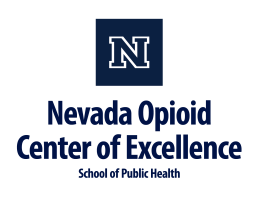This is a two-part interactive training taking place on May 2, 2025, from 11:00 AM – 1:30 PM PST and May 9, 2025, from 11:00 AM – 12:00 PM PST. Participants must attend both sessions to receive credit; partial credit will not be offered.
The Community Resiliency Model (CRM) Training is a two-part series designed to introduce participants to practical, science-backed strategies for building resilience and regulating the nervous system in response to stress and trauma. CRM is a strengths-based, mind-body approach that empowers individuals with six key wellness skills to help stabilize the nervous system and restore balance.
The two fundamental goals of CRM are to help adults and children learn to track their own nervous systems in order to bring the body, mind and spirit back into greater balance, and to encourage people to pass the skills along to family, friends and their wider community. CRM can be used as self-care for those community members who are the front-line workers, responding to crisis situations or who live in highly traumatized and/or marginalized communities.
Part 1 orients the learners to all six skills of the model. Part 2 is a practice day where all six skills are practiced in small structured groups to increase proficiency in using the skills. Day 2 also provides an opportunity for further dialogue about how to bring CRM Skills to a wider community.
IMPORTANT: This interactive series requires participants to have access to the necessary technology to use the Zoom videoconferencing platform, including a stable internet connection, a webcam, a laptop or tablet, speakers, and a microphone. Active participation is essential for developing and improving skills, so attendees should be prepared to engage fully in discussions and activities.
Part 1: Community Resiliency Model (CRM) Training
May 2, 2025 from 11:00 AM – 1:30 PM PST
Learning Objectives:
By the end of the session, participants will be able to:
- Describe how stress and trauma affect mental and physical health.
- Learn and practice the six skills of the Community Resiliency Model (CRM).
- Explore how current challenges fit into CRM’s framework for understanding stress and trauma, and its impact on mental and physical health.
- Describe how CRM can protect and heal via sensory-motor awareness.
- Explain how you can share CRM skills with others as a “CRM Guide.”
Part 2: CRM Extended Learning: Resiliency-Building & the Path to Holistic Prevention
May 9, 2025 from 11:00 AM – 12:00 PM
Learning Objectives:
By the end of the session, participants will be able to:
- Reinforce and expand on skills learned in CRM training.
- Explore how sensory awareness and resiliency building support holistic substance use prevention.
- Explore the application of CRM skills in various environments and populations.
- Summarize current research related to CRM and other mindfulness-based wellness practices.
- Contribute to safety and wellbeing in the community
Presented by: Fabricia Prado, LCSW and CWC Alliance
Continuing Education Units: 3.5 CEUs
This training is approved for continuing education by the boards listed here.
Funding for this activity was made possible in whole or in part by the Nevada Department of Health and Human Services (DHHS) Director’s Office through the Fund for a Resilient Nevada, established in Nevada Revised Statutes 433.712 through 433.744. The opinions, findings, conclusions, and recommendations expressed in our courses are those of the author(s) and do not necessarily represent the official views of the Nevada Opioid Center of Excellence or its funders.

